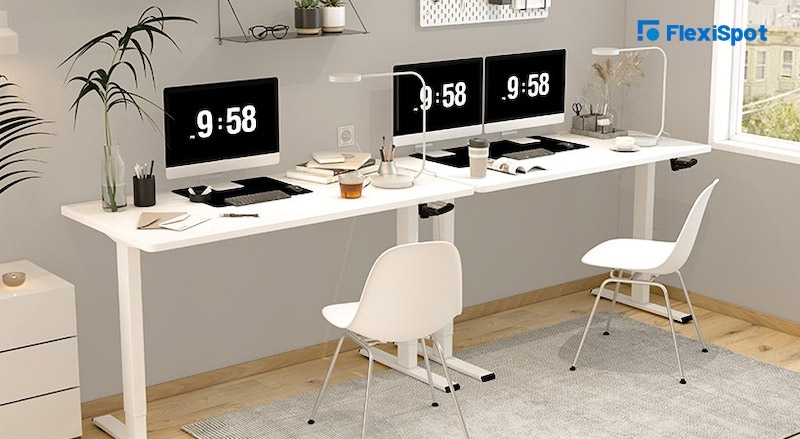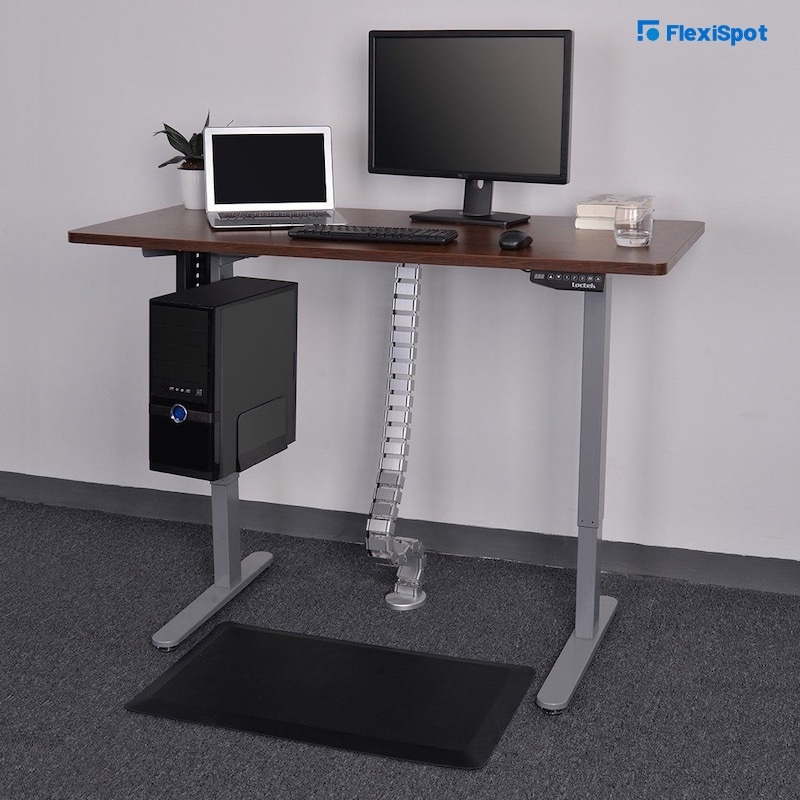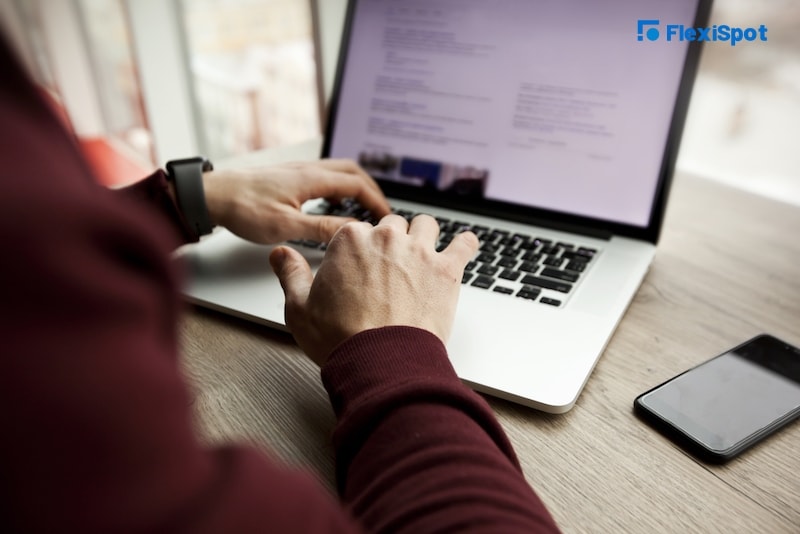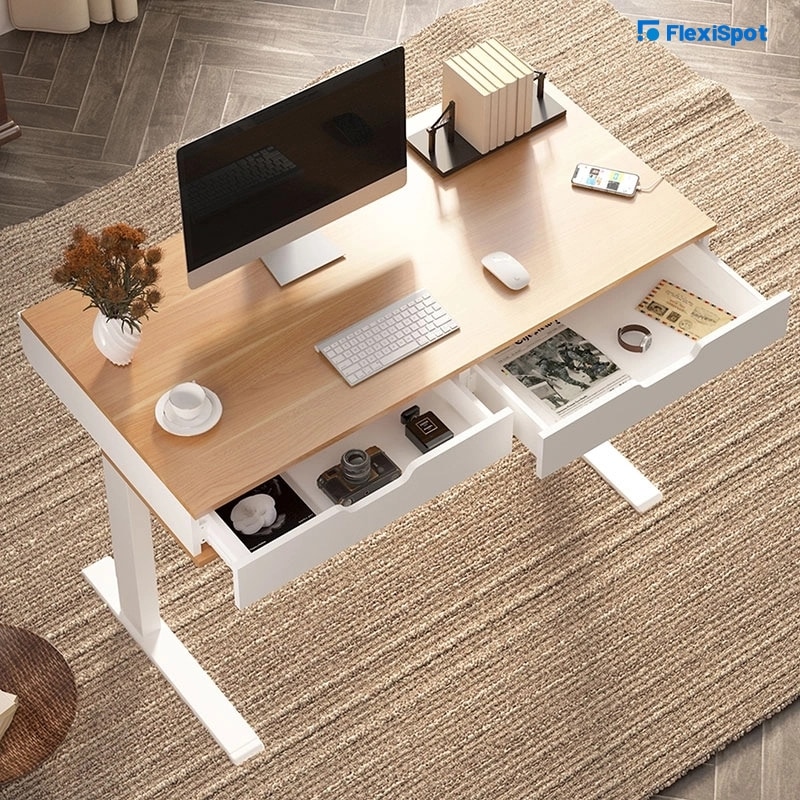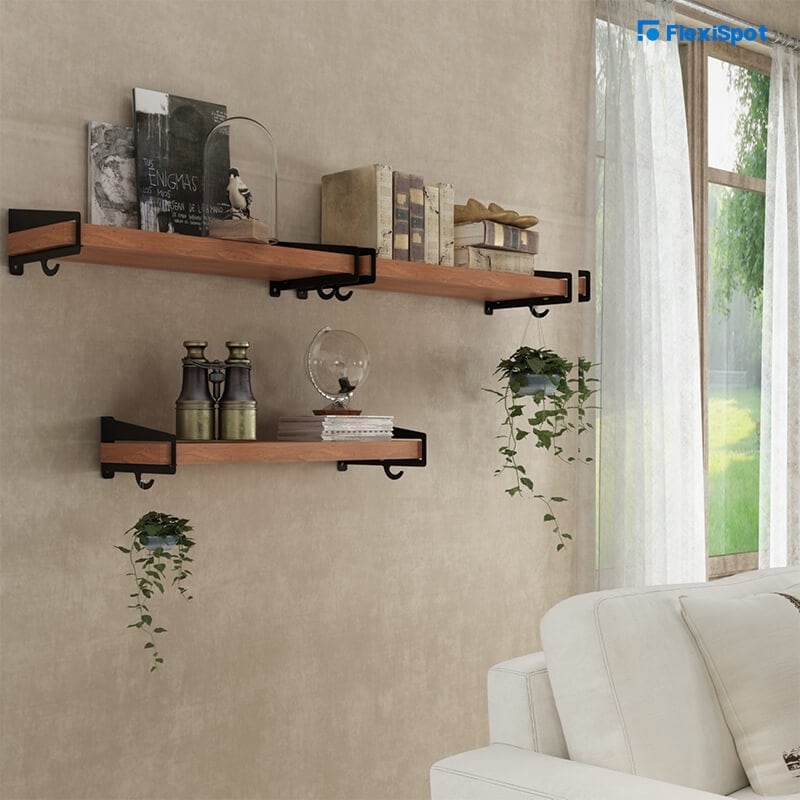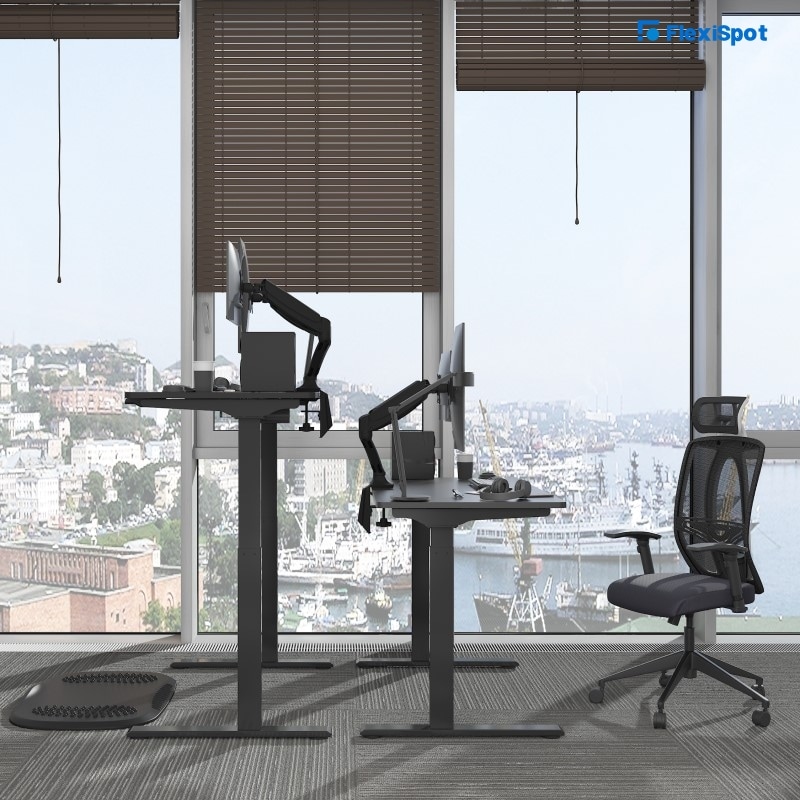Designing the perfect office space, no matter how big or small requires a mixture of effective planning and creative touch. There are numerous different things to consider, from where to place your desk to ways of utilizing natural light and how to store everything without ending up with a disorganized mess. It can be overwhelming for the best of us.
But, no matter how challenging it may seem, compact yet efficient office space is one of the best ways to ensure you bring your most productive self to work each day. Several studies have shown the importance of well-planned office layouts and how they boost work productivity. The more time you spend in your office each day, the more critical, it is to have a highly functional space.
If you're setting up a compact home office or trying to re-do the layout of your small space at work, we have some excellent tips to help you out! Here are some things to keep in mind when designing an office with limited space.
Tips for Setting Small Offices with Limited Space
The perfect small office can be hard to create with so many factors in play. You will need to focus on keeping the workspace as healthy and disturbance-proof as possible. You will also need a flexible design that offers plenty of room for storage while staying within your budget. The tips compiled below are designed to help you achieve all this and so much more! Let's have a look.
Utilize the Power Position
Just as the name indicates, the power position is the best way to have authority over your workplace. It doesn't matter whether you're designing the layout of a small cubicle, an office, or a home workspace. This tip works for all areas, ensuring you feel focused and ready to take on the day.
The power position allows your corner standing desk to be located on the opposite side of the door. Therefore, anybody entering or leaving your work area will be right in front of your eyes. This can limit interruptions and prevent you from being caught off-guard when you're in the middle of a brainstorming session with your complete focus on work.
Tuck All Cables Away
Nothing interrupts workflow more than a messy space that leaves little to no room for you to move about. Most of us work on computers and require numerous technological devices in our office. These devices have their own cables, which tend to dance about with each other, become tangled and create a mess.
To avoid this from hindering your productivity levels, make sure all cables are set up with their own power supply, so you don't have to yank them out and plug them back in repeatedly. Also, be sure to tuck away all cables and wires behind your desk or around the walls.
Zip ties and bread clips should be used to fold any extra wire length. You can even invest in cable organizers to help you maintain a clutter-free workspace.
Well-Planned Color Schemes Boost Productivity
Entrepreneur.com reports that your office's color scheme can actually play a large hand in boosting productivity and creativity each day. While it may sound absurd, the fact is that your office wall's colors have quite an impact on your ability to work.
This is because different color schemes evoke different feelings, emotions, and concentration levels. If your office walls are painted a bright red or a dull, gloomy grey, chances are you'll feel agitated or lethargic as soon as you step in. It won't do any favors to your work output.
A better option is to opt for light hints of color like a cool blue or a subtle green to add life to your walls without making them too loud. You'll feel more comfortable working in a space that doesn't have bright, white walls staring back at you. This comfort will naturally help you perform better and manage your work tasks successfully.
Don't Rely on Paper Too Much
No, we aren't suggesting this so you can be more eco-friendly, although that is an added benefit too. When you choose to make notes, calendar entries, and task lists digitally instead of on paper, it saves you files upon files of loose sheets that need to be stored. Your limited office space with automatically become more agile with reduced reliance on paper, and you'll have a more open area to move about. You might even be able to get rid of some of those storage boxes tucked under your small desk!
Windows are Your Friends
An essential aspect of your small office is the lighting and how well it illuminates your desk. Sunlight improves your mood instantly, which in turn increases your ability to work well. Apart from its effect on your body, natural light is also a great way to minimize energy costs while getting plenty of light to focus on your daily tasks.
Try to place your small desk in an area that receives direct sunlight. It would be best if you were careful not to place your computer screen in the way of the sunbeams, though, as it'll cause glare and leave you unable to view the screen properly.
Keep it Organized
As you make your way through the workday, paperwork and office accessories tend to pile up on your desk, leaving little to no room for you to actually work on. An effective way to prevent this is by keeping your workspace organized and labeled well.
A home office desk with storage space under it can do wonders to keep your space tidy and without clutter. It'll help you work efficiently and focus on your tasks without the mess getting in the way.
Standing Desks Maximize Space
Every office needs a desk, no matter what kind of work you do and what your office environment is like. If you're designing the layout of your small office, we recommend not reaching for a big, bulky desk. While they may look professional and fit into the general view of what an office should look like, they will only make your already small space appear even smaller.
You don't want to end up feeling suffocated in your own office now, do you?
A better idea is to opt for a dual-functioning standing table that lets you work more efficiently. The best standing table is one that allows plenty of under-desk storage space while also being compact enough to fit in any area. This desk will let you work comfortably while sitting, and you can hold discussions with your team members while standing. There won't be an issue of not having a desktop surface to keep your papers, files, or computer!
Vertical Storage for the Win!
All too often, we notice that people try to use their office room effectively by bringing in compact storage elements and using smaller pieces of furniture. Unfortunately, they often overlook one of the best places to store your office goods - the walls!
Yes, you read it right! Most offices have at least two empty walls that you can use for efficient storage. Instead of cluttering up the floor area, you have, why not shift some of your things to the vertical space you're blessed with? All you'll need are a few shelves or some sturdy wall hangings with pockets for your files, cables, and stationary. You can also add stylish hooks for your coat and jackets!
Final Words - Optimize Your Small Office Layout
Setting up an office within a small, limited space is no easy task. You will be spending a large part of your day in this space regularly. It will directly impact your performance at work and can significantly influence your productivity levels. With so much at stake, your office layout needs to be planned to perfection, and the tips mentioned above will surely help you achieve it!
A standing desk is one of the most innovative ways to utilize your limited space efficiently. It offers you dual-functionality by merging a sitting and standing desk into a straightforward piece of furniture that won't fill up your entire space.
